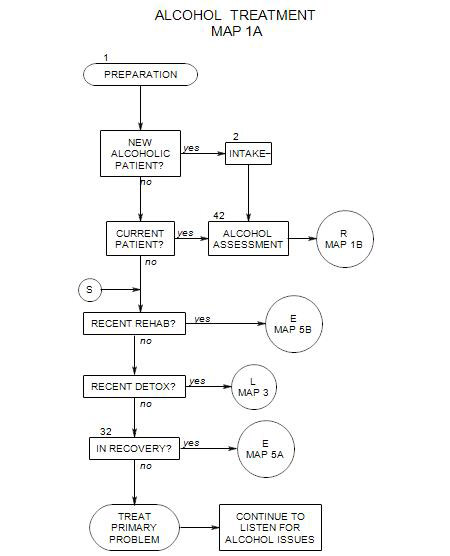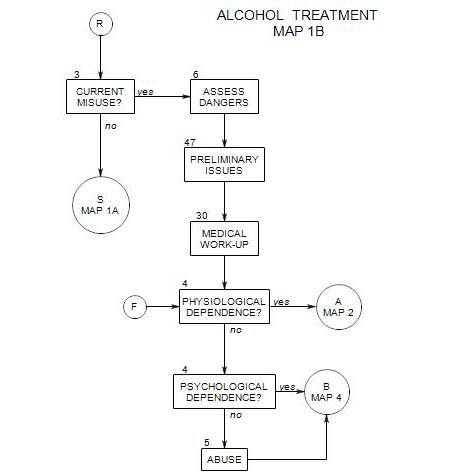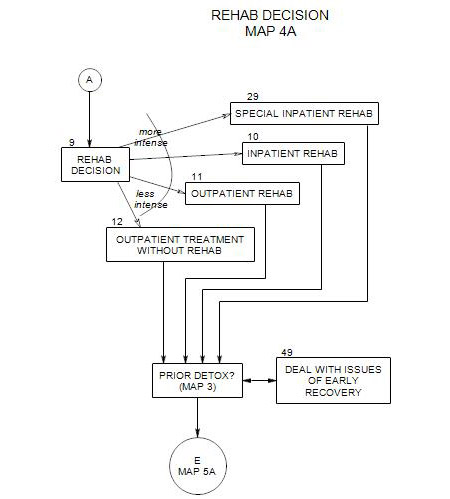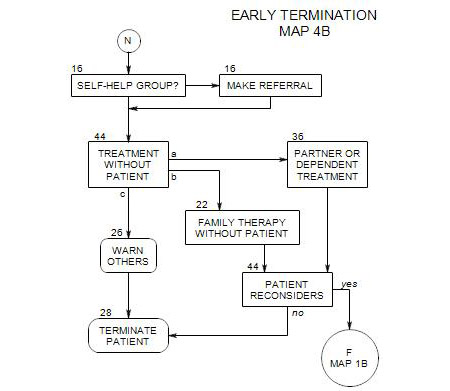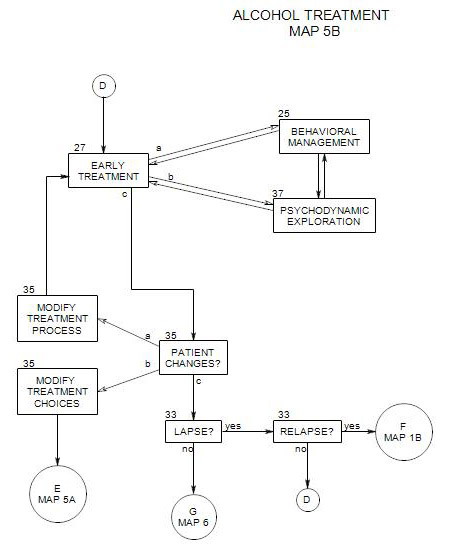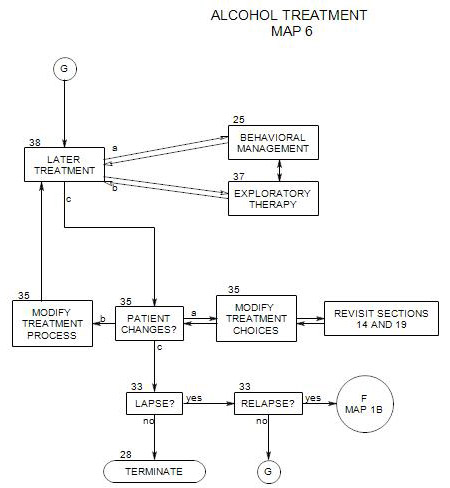- This section appears as the first question on Map 3, for a patient who is psychologically dependent or abusive of alcohol and is not in psychotherapy.
At this point, the patient should be addressing alcohol misuse, whether he/she is concerned about it or not. The problem is to establish a treatment alliance that will help the person stay with therapy long enough to explore some of his/ her psychological, interpersonal and/or alcohol-related issues.
If you haven’t already done so, this is a good point to ask about the patient’s need for treatment, interest in treatment, and willingness to continue. This can lead to a decision about whether to proceed, and if so, in what way. If the patient is ambivalent about treatment, this might be a good time to explore that ambivalence.
There are many reasons that a person might not want continued treatment, including these:
- A belief that continued therapy would inevitably require abstinence from a person who is not willing to give up drinking.
- He/she may be there under pressure from a spouse or family and be unwilling to give in or to be the identified troublemaker.
- He/she may believe that drinking is a justified and necessary response to his/ her life or family.
A person might also feel obligated to meet with you because of external pressures but have no real desire to do so and plan to leave at the first opportunity. Some reasons for this point of view might be
- a court mandated referral for anger management following instances of physical violence or threats of violence.
- a condition of return to driving a vehicle after having a driver’s license revoked for drinking and driving.
- a custody problem where children were at risk due to drinking.
Each objection must be addressed and handled in some way, as it helps to establish the patient’s expectations and conditions for working with you. Some reasons may be valid, and all are worthy of attention and serious consideration. If a patient is convinced of your respect and interest as well as the long-term value of abstinence, he/she will be more willing to undertake the effort and risk failure at working toward it.
As with any psychological issue, treatment must begin where the patient is, with the topics that he/she thinks are important and the issues that he/she wants to address. If he/she can be encouraged to continue, then in the process of working with his/her chosen issues you will both learn about him/her and find opportunities to address his/her drinking as well.
